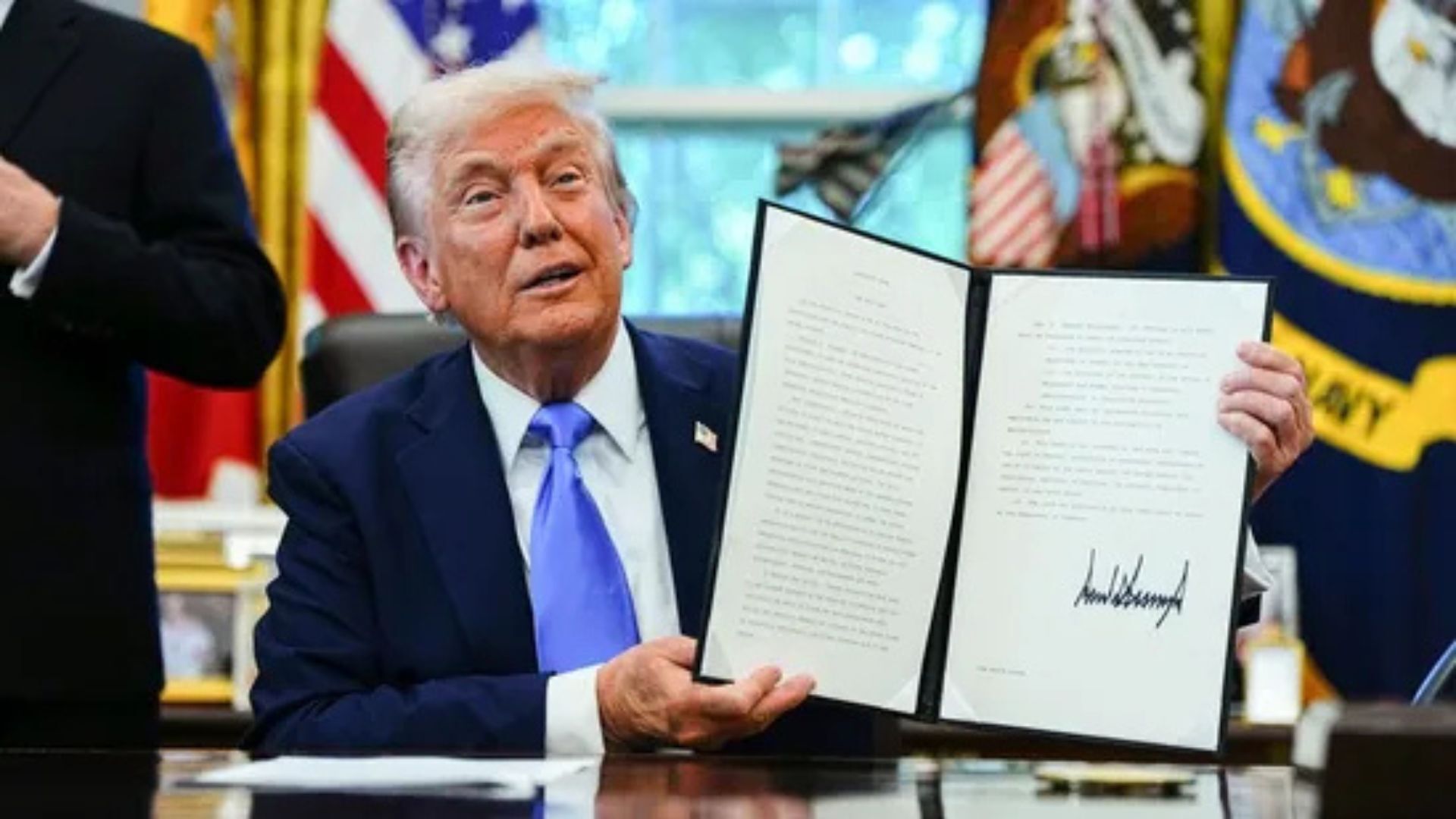Politics
Trump Administration Imposes $100K Annual Fee on H-1B Visas

Former US President Donald Trump has enacted a proclamation that imposes a significant annual fee of $100,000 on H-1B visa applications. This decision, announced on March 3, 2023, is expected to have substantial repercussions for the technology sector in the United States, which heavily relies on skilled workers from countries such as India and China.
During a press conference at the White House, US Commerce Secretary Howard Lutnick stated that major corporations have been informed of the new fee structure. “A hundred-thousand dollars a year for H-1B visas, and all the big companies are on board,” Lutnick said. He emphasized that companies should prioritize training American graduates rather than depending on foreign talent.
The H-1B visa program currently offers 65,000 visas annually, with an additional 20,000 available for advanced degree holders. It is widely utilized by leading tech firms such as Amazon, Microsoft, and Meta, each securing thousands of visa approvals this year. Approximately two-thirds of H-1B roles are in computer-related fields, although the visa is also applicable in engineering, education, and healthcare sectors.
The announcement has sparked a divided response. Critics argue that the H-1B program suppresses wages for US workers, while supporters, including Tesla CEO Elon Musk, who was once an H-1B holder, assert that it addresses critical talent shortages and maintains America’s competitive edge. Venture capitalist Deedy Das expressed concern that the new fee “creates a disincentive to attract the world’s smartest talent.”
Legal experts have raised questions about the authority of the Trump administration to impose such a steep fee, pointing out that visa costs are typically restricted to covering processing expenses. If implemented, this policy could disproportionately impact smaller tech firms and startups, forcing these companies to either absorb the high costs or limit their foreign hiring.
The ramifications of this proclamation remain to be seen, but the potential costs could reshape the landscape of the US technology industry. As companies adjust to these changes, the focus on domestic workforce training and the future of skilled immigration will be critical topics of discussion in the coming months.
-

 World3 months ago
World3 months agoTest Your Knowledge: Take the Herald’s Afternoon Quiz Today
-

 Sports3 months ago
Sports3 months agoPM Faces Backlash from Fans During Netball Trophy Ceremony
-

 Lifestyle3 months ago
Lifestyle3 months agoDunedin Designers Win Top Award at Hokonui Fashion Event
-

 Sports3 months ago
Sports3 months agoLiam Lawson Launches New Era for Racing Bulls with Strong Start
-

 Lifestyle3 months ago
Lifestyle3 months agoDisney Fan Reveals Dress Code Tips for Park Visitors
-

 World4 months ago
World4 months agoCoalition Forms to Preserve Māori Wards in Hawke’s Bay
-

 Health3 months ago
Health3 months agoWalking Faster Offers Major Health Benefits for Older Adults
-

 Politics3 months ago
Politics3 months agoScots Rally with Humor and Music to Protest Trump’s Visit
-

 Top Stories4 months ago
Top Stories4 months agoUK and India Finalize Trade Deal to Boost Economic Ties
-

 Entertainment3 months ago
Entertainment3 months agoExperience the Excitement of ‘Chief of War’ in Oʻahu
-

 World4 months ago
World4 months agoHuntly Begins Water Pipe Flushing to Resolve Brown Water Issue
-

 Science4 months ago
Science4 months agoNew Interactive Map Reveals Wairarapa Valley’s Geological Secrets









